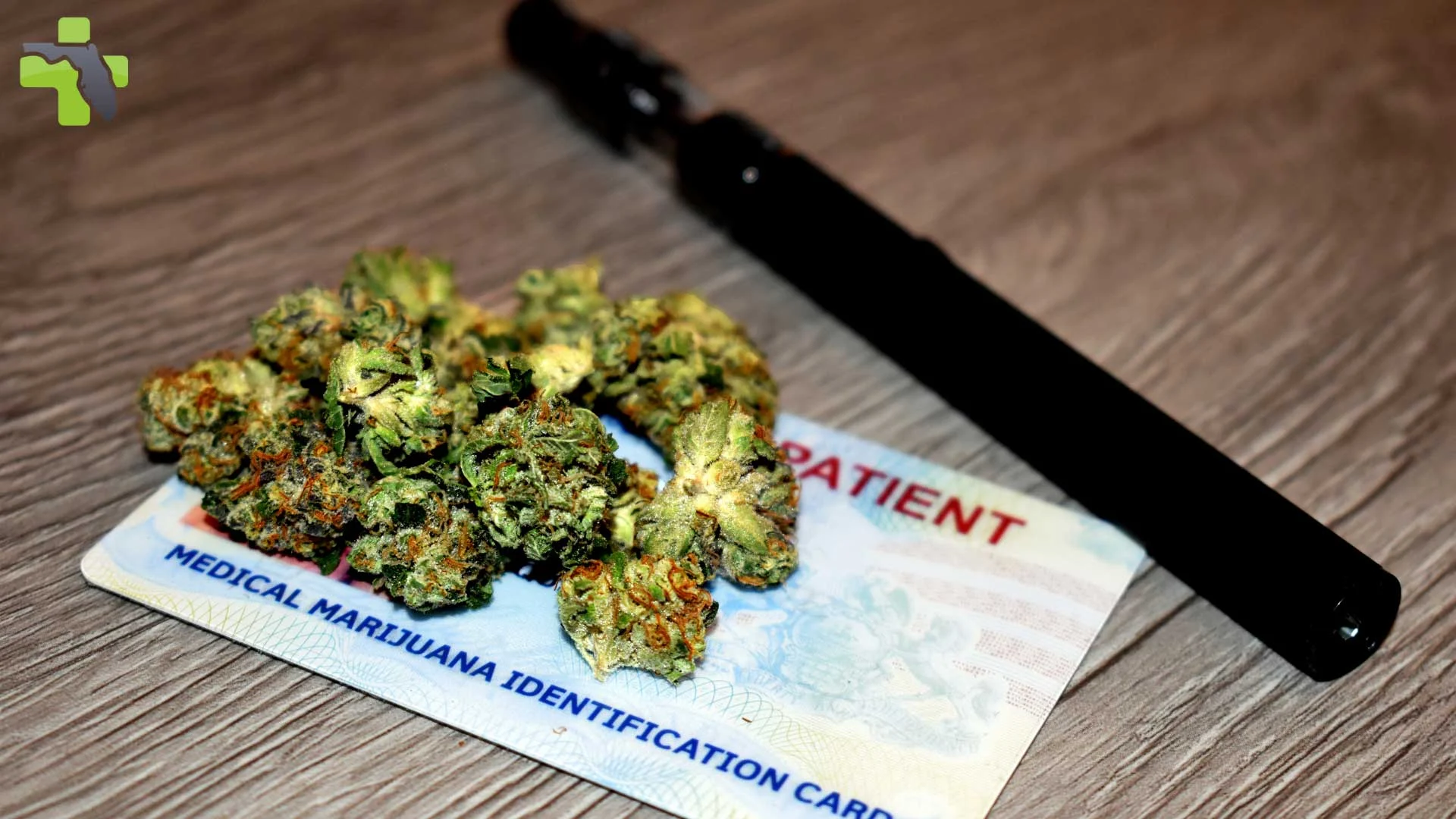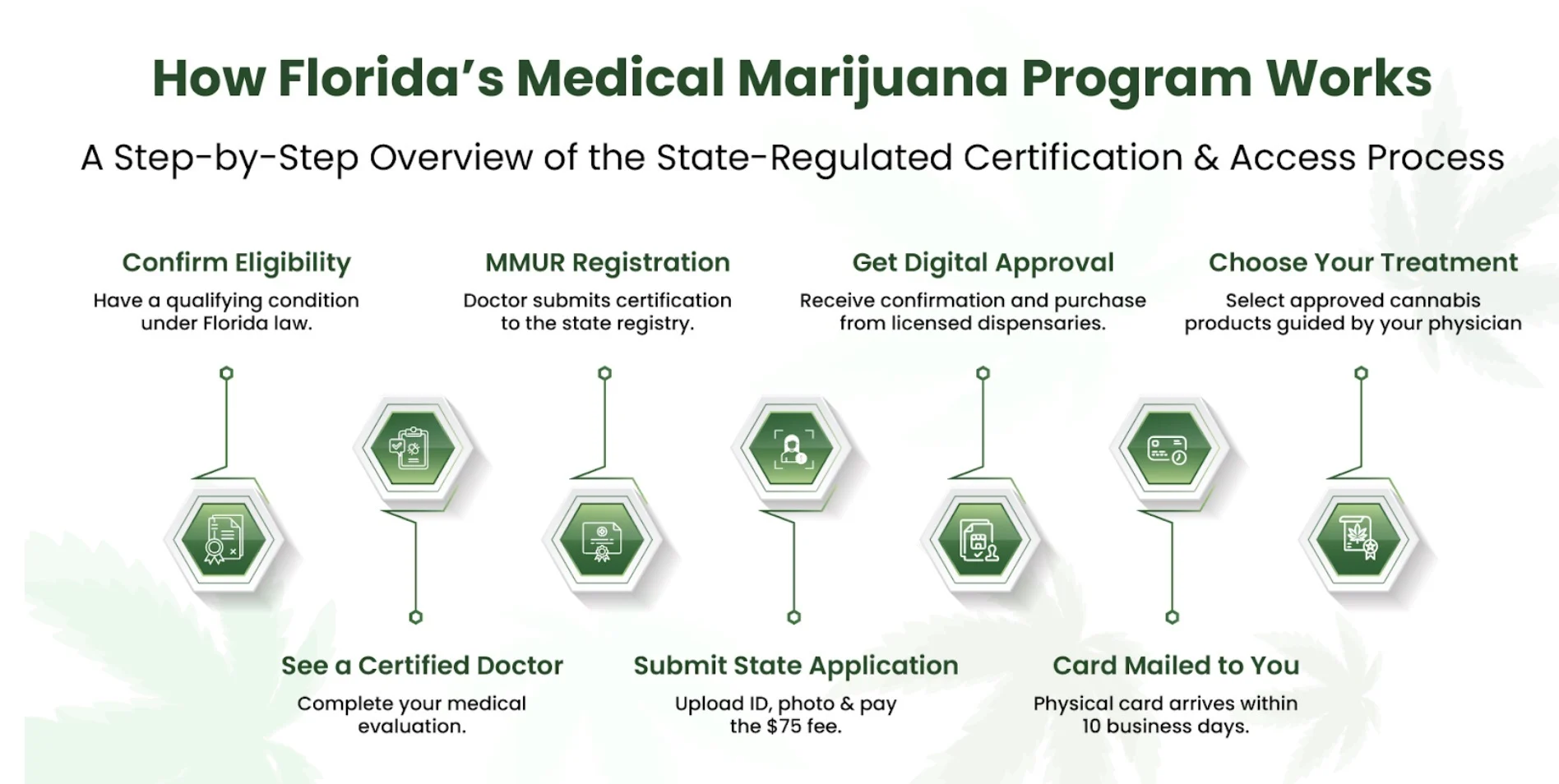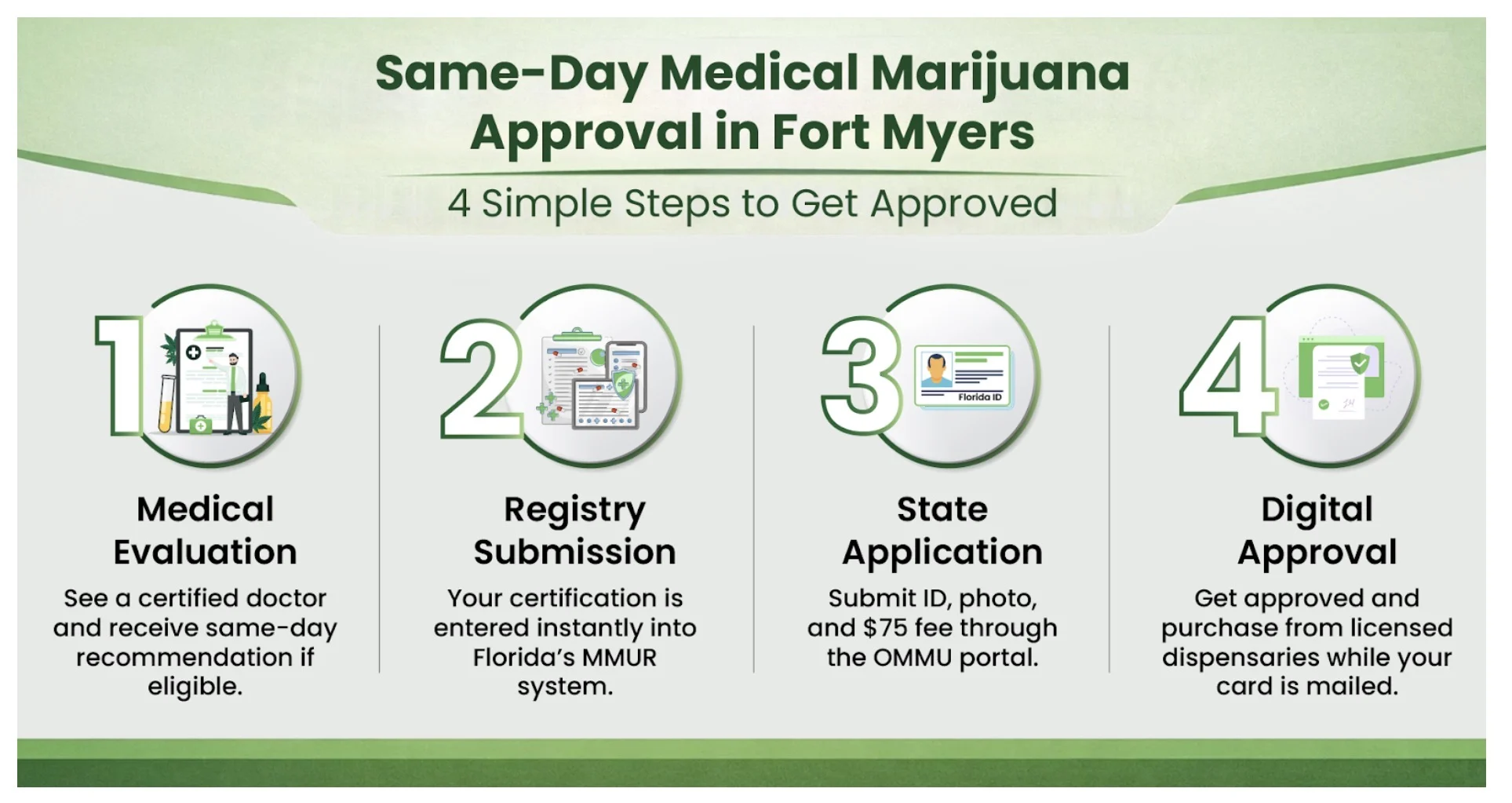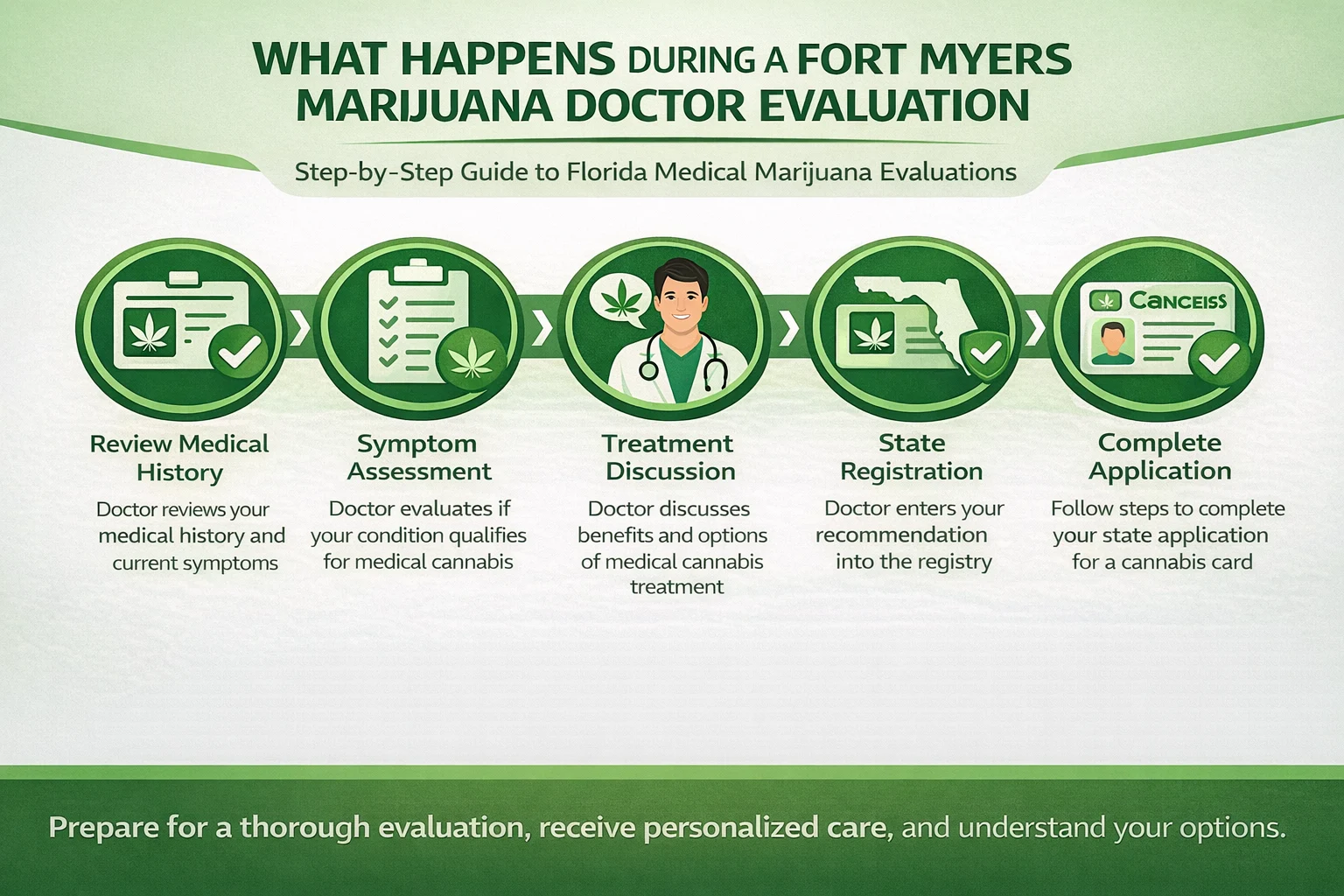As the aging population is increasing, the cases of dementia are also increasing. More and more people today are suffering from debilitating effects of dementia. Families and medical professionals alike are seeking alternative treatments that could ease symptoms or slow the progression of cognitive decline. In the pursuit of finding a suitable alternative, people are looking at Medical Marijuana as a possible option. The connection between Cannabis and dementia research is still on-going to understand how different Marijuana products like edibles help dementia.
In this article, we will explore the latest insights from cannabis and dementia research, discuss the health effects of medical marijuana, and clarify how to get a medical marijuana card in jacksonville. It will also look at whether edibles can help dementia patients and what are the qualifying conditions for medical card in Florida.
What Is Dementia?
Dementia is a general term for a decline in cognitive function that affects memory, reasoning, language, and behavior. Alzheimer’s disease is the most common form, but dementia can also be caused by Parkinson’s, stroke, or other neurodegenerative conditions. There is currently no cure for dementia, which is why research into symptom management, such as through medical cannabis has become more urgent.
Cannabinoids found in Cannabis have the potential to affect the body’s Endocannabinoid system. There is on-going research on the connection between Cannabinoids and Alzheimer’s disease to see if it can be used as a potential option.
Cannabis and Dementia Research: What Does Science Say?
Cannabis and dementia research is still in its early stages, but it’s evolving. Researchers and the medical fraternity are studying Medical marijuana’s health effects to unravel its potential. Some new findings include:
Neuroprotection: Some animal studies suggest cannabinoids like THC and CBD may protect brain cells by reducing oxidative stress and inflammation, both of which are linked to cognitive decline.
Behavioral Management: Cannabis may help manage symptoms like agitation, aggression, anxiety, and sleep disturbances, which are common in dementia patients.
Appetite Stimulation: It can help increase appetite in patients experiencing weight loss due to dementia.
What are the risks of taking Cannabis?
It is important to understand that Cannabis can have different effects on different people. Hence, it is important to take it with the guidance of an expert to understand its impact on your symptoms. Long term discriminate use of high doses of Cannabis can cause side effects on some people:
Cognitive Impairment: THC, the psychoactive component of marijuana, is known to impair short-term memory and learning in high doses.
Lack of Long-Term Data: There’s limited research on the long-term effects of medical marijuana in elderly patients with dementia.
Individual Sensitivity: Older adults may be more sensitive to cannabis, and reactions can vary widely depending on dosage and strain.
Can Edibles Help Dementia?
There needs to be more analysis on Cannabis and dementia research and on how Cannabis edibles can help dementia.
Edibles include cannabis-infused things that can be eaten such as gummies, baked goods or capsules. They offer a smokeless and often longer-lasting effect. It is easier for elderly patients to take edibles since they do not want to smoke or vape. Edibles have a delayed onset, from 30 minutes to 2 hours. Slow release and longer duration may help with chronic symptoms like insomnia and anxiety. It can also lead to accidental overconsumption as users can become impatient and can take more than required.
It is harder to dose edibles accurately without medical guidance. If considering edibles for a loved one with dementia, it is vital to consult a qualified medical professional who understands medical marijuana health effects in elderly populations.
Medical Marijuana Health Effects for dementia patients
Understanding the health effects of medical marijuana in relation to dementia involves a balance of potential benefits and side effects.
Positive effects include:
- Reduction in agitation and mood swings.
- Better sleep.
- Increased sociability.
- Appetite improvement
Some side effects to include:
- Drowsiness.
- Dizziness or falls (especially in elderly patients).
- Confusion or hallucinations (in higher THC doses)
CBD-rich products or low-THC formulations are often recommended for elderly patients to reduce the psychoactive side effects. An experienced Marijuana expert can determine which strain and composition is best for each individual.
Qualifying Conditions for Medical Card in Florida
To legally access medical cannabis in Florida, patients must have a qualifying condition certified by a licensed physician. Some qualifying conditions for a medical card in Florida include:
- Anxiety
- Hepatitis C
- Sickle Cell Anemia
- Severe & Chronic Pain
- Migraine Headaches
- Cancer
- Back Pain
- Rheumatoid Arthritis
- Diabetes
- Parkinson’s Disease
- Muscular Dystrophy
- Multiple Sclerosis (MS)
- Insomnia & Sleep Disorders
- Severe Nausea
- Amyotrophic lateral sclerosis
- Chronic nonmalignant Pain
- Cachexia
- Epilepsy
- HIV/AIDS
- Spasticity
Dementia-related symptoms may be approved under “comparable debilitating conditions” at the discretion of your physician.
How to Get Medical Marijuana Card in Jacksonville
If you or a loved one live in Florida and want to explore cannabis for dementia, here’s how to get a medical marijuana card in jacksonville:
- Consult a Medical Marijuana Doctor: A certified provider will evaluate the patient’s medical history.
- Get Registered: If approved, your physician will enter you into the Medical Marijuana Use Registry.
- Apply for the Card: Submit your application online or by mail to the Florida Department of Health.
- Visit a Licensed Dispensary: Once approved, you can legally purchase products from state-approved dispensaries.
Make sure to speak with your doctor about dementia-related symptoms and whether cannabis could be a viable management option.
Does Medical Marijuana Cause or Help Dementia?
The truth is that we are still learning about Medical marijuana’s health effects. While early cannabis and dementia research shows promise in managing certain symptoms like anxiety, agitation, and appetite loss, there’s no definitive evidence that medical marijuana slows the progression of dementia.
On the other hand, there’s also no strong evidence that medical marijuana causes dementia, especially when used in controlled, therapeutic doses. As more research unfolds and laws evolve, many families are finding relief through medical cannabis under medical supervision. If you are considering this option for a loved one, be sure to discuss it with a medical marijuana doctor. You should start with products low in THC and rich in CBD.
For Florida residents, including those in Jacksonville, it’s easier than ever to explore this pathway by checking qualifying conditions for a medical card in Florida and consulting a medical marijuana license doctor near you.










